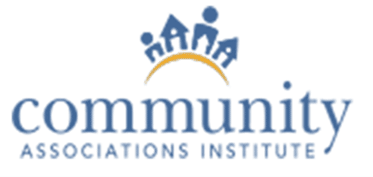Published on:

In a series of reports, The Foundation for Community Association Research released findings from studies on the growth of community associations, residents’ satisfaction with their communities, top trends and benefits of this form of housing, and how states compare.
Its latest statistical review, for 2021-2022, shows that 74.2 million Americans (about 28% of the U.S. population) now live in a homeowners association (HOA), condominium community, or housing cooperative, collectively referred to as community associations or planned communities.
The Foundation estimates there were around 358,000 community associations nationwide as of 2021, with homeowner associations (HOAs) accounting for 48%-to-63% of the total. Some 35%-to-40% are condo communities, with cooperatives making up 2%-to-4%. Collectively, the value of homes in community associations is nearly $11 trillion – and these homes are generally valued at least 4% more than homes that are not part of an association.
In Washington state, around 2.4 million residents occupy 944,000 homes in more than 10,680 community associations. Together, they pay $4.4 billion annually to maintain their communities. Researchers also reported 9,700 Washingtonians serve as volunteer leaders in their community associations each year, providing $109.4 million in service.
California leads the country with 50,010 associations housing 14.3 million residents. Florida, Texas, Illinois, and North Carolina round out the list of top five states with community associations.
Community associations have experienced consistent growth. In 1970, there were 10,000 community associations with approximately 2.1 million residents.
The community association model is expected to become the most common form of housing by 2040.
The 2020 U.S. Census data show that 65% of new single-family homes were built in a community association. Projections by the Foundation indicated the number of condo communities and HOAs will increase by 5,000 this year.
Along with its statistical compilations, the Foundation also routinely surveys homeowners to gauge their satisfaction with community associations. Overall, two-thirds of survey respondents rate their experience as “very good” (38%) or “good” (28%). More than one fourth (28%) are “neutral.”
When asked to rank the top features community associations offer, association residents listed maintenance-free, safety, and cleanliness.
An overwhelming majority of homeowners (87%) said they knew their home was part of a community association, and the same proportion believe their governing board “absolutely” or “for the most part” serves the best interest of the community. About two thirds of residents (68%) believe the rules in the communities protect and enhance property values. Despite overall awareness and satisfaction, less than half the respondents (45%) said the association made them more interested in the home.
The latest report found assessments totaling about $26.6 billion were contributed to association reserve funds for the repair, replacement, and enhancement of common property. Industry experts anticipate a new focus on healthy reserve funds, in part due to the aftermath of the partial collapse of Champlain Towers South condominium in Surfside, Florida in 2021.
Data in the statistical review is part of the Community Association Fact Book, which the Foundation for Community Association Research has published for nearly 40 years. Researchers use American Community Survey and American Housing Survey data as part of their study and analysis. The latest Fact Book was based on a biennial, nationwide survey administered by independent researcher Zogby Analytics.
In addition to its Community Association Fact Book, the Foundation also publishes Best Practices Reports, Community Association Manager Compensation and Benefits Survey, and Homeowner Satisfaction Survey.

The Foundation is the leading research affiliate of Community Associations Institute (CAI). CAI is an international trade association and special interest group with more than 60 chapters in the U.S. It provides education and resources to volunteer homeowners who govern community associations and the professionals who support them. The group also supports public policy that recognizes the rights and responsibilities of homeowners and promotes the self-governance of community associations.